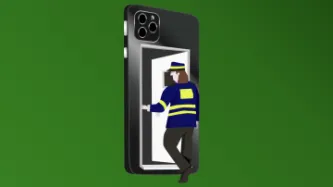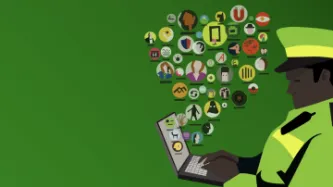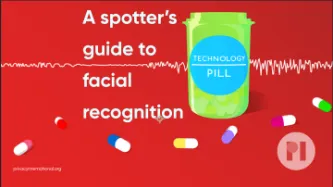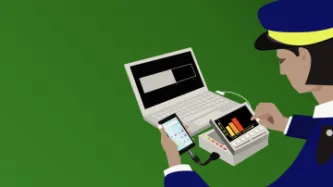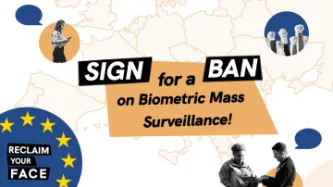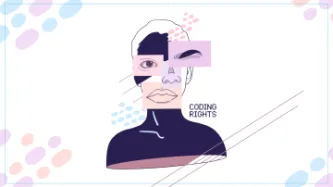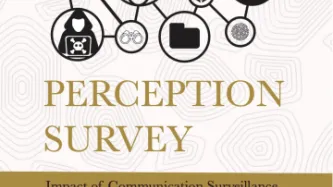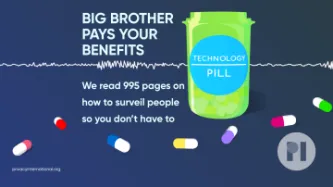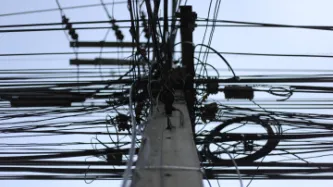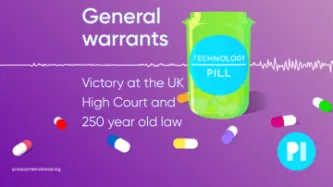Search
Content type: Explainer
What is hacking?
Hacking refers to finding vulnerabilities in electronic systems, either to report and repair them, or to exploit them.
Hacking can help to identify and fix security flaws in devices, networks and services that millions of people may use. But it can also be used to access our devices, collect information about us, and manipulate us and our devices in other ways.
Hacking comprises a range of ever-evolving techniques. It can be done remotely, but it can also include physical…
Content type: Explainer
What is an IMSI catcher?
‘IMSI’ stands for ‘international mobile subscriber identity’, a number unique to your SIM card. IMSI catchers are also known as ‘Stingrays’.
An ‘IMSI catcher’ is a device that locates and then tracks all mobile phones that are connected to a phone network in its vicinity, by ‘catching’ the unique IMSI number.
It does this by pretending to be a mobile phone tower, tricking mobile phones nearby to connect to it, enabling it to then intercept the data from that phone…
Content type: Explainer
What are ‘cloud extraction tools’ and what do they do?
Cloud extraction technology enables the police to access data stored in your ‘Cloud’ via your mobile phone or other devices.
The use of cloud extraction tools means the police can access data that you store online. Examples of apps that store data in the Cloud include Slack, Instagram, Telegram, Twitter, Facebook and Uber.
How might cloud extraction tools be used at a protest?
In order to extract your cloud data, the police would…
Content type: Advocacy
This report is presented by TEDIC (Technology and Community Association) and Privacy International (PI). TEDIC is a non-governmental, non-profit organization, based in Asunción, that promotes and defends human rights on the Internet and extends its networking to Latin America. PI is a London based human rights organization that works globally at the intersection of modern technologies and rights.
TEDIC and PI wish to express some concerns about the protection and promotion of the right to…
Content type: Video
Remember: sign our ECI! pvcy.org/banbiometrics
And you can find our survey here: pvcy.org/tpsurvey
Links
Facebook Leak
- Facebook Leak: https://www.businessinsider.com/stolen-data-of-533-million-facebook-users-leaked-online-2021-4?r=US&IR=T
- Mark Zuckerburg on signal?: https://www.thesun.co.uk/tech/14595265/mark-zuckerberg-using-whatsapp-rival-signal/
- Irish DPA investigation: https://www.cnet.com/news/facebook-under-investigation-in-europe-over-massive-personal-data-leak…
Content type: Explainer
What do mobile phone extraction tools do?
Mobile phone extraction (MPE) tools are devices that allow the police to extract data from mobile phones, including:
contacts;
call data (i.e. who you call, when, and for how long);
text messages (including who you texted and when);
stored files (photos, videos, audio files, documents etc);
app data (including the data stored on these apps);
location information history;
wifi network connections (which can reveal the locations of any…
Content type: News & Analysis
This article was written by Jamila Venturini from Derechos Digitales. The original version (in Spanish) is available here.
While at the international level there is a growing demand to ban the use of surveillance technologies until rigorous human rights standards are achieved, in Latin America we observe a new and silent tendency to acquire and use such systems to control access to social protection, i.e., to policies developed to reduce poverty, social vulnerability and exclusion…
Content type: Long Read
The role of the Human Rights Act in shaping UK jurisprudence has been discussed at length since the European Convention on Human Rights was brought into UK law. This ongoing discussion was recently fueled by former UK Supreme Court judge Jonathan Sumption’s Reith Lectures, where he voiced concerns in relation to European Court of Human Rights (ECtHR) jurisprudence specifically in relation to Article 8 and the right to privacy.
We disagree with this view. The Human Rights Act has led…
Content type: News & Analysis
This blog post by Coding Rights was originally published in Portuguese at: https://tinyurl.com/mediumcodingrightsTransID. It was written by Mariah Rafaela Silva and Joana Varon and translated by Erly Guedes. Illustration was produced by Clarote.On the International Transgender Day of Visibility, Mariah Rafaela Silva and Joana Varon authors of the report “Facial recognition in the public sector and trans identities: techno-politics of control, surveillance and threats to gender diversity…
Content type: Report
Human rights defenders across the world have been facing increasing threats and harms as result of the use of digital and technological tools used by governments and companies which enable the surveillance, monitoring and tracking of individuals and communities. They are continuously at risk of violence, intimidation and surveillance as a direct consequence of the work they do. Such surveillance has been shown to lead to arbitrary detention, sometimes to torture and possibly to extrajudicial…
Content type: Long Read
This article was written by Sameet Panda and Vipul Kumar.
Over the last couple of years, there has been a push towards digitising the PDS, which includes linkage with the Aadhaar (India’s biometric identification system) and maintenance of digital records at Fair Price Shops that distribute the ration, among other initiatives. Without taking into account the availability of appropriate digital infrastructure and access among beneficiaries, these initiatives have been unable to solve…
Content type: Examples
Sidestepping the need to obtain a search warrant, the US Department of Homeland Security (DHS) has been accessing smartphone location data by buying it from private marketing that typically embed tracker in apps. This data, which maps the movement of millions of cellphones in America, was collected from ordinary cellphone apps, to which users gave access to their location. In this particular instance, it was used by the DHS to search for undocumented immigrants according to the Wall Street…
Content type: Video
Content warning: this episode includes some disturbing stories of people who have died after having their benefits cut or withdrawn by the UK Department of Work and Pensions
Links
Find out more about the DWP's surveillance
Find out more about the DWP's alogrithim
You can find out more about each of the cases of people who died after their benefits withdrawn below:
Errol Graham
The 5,000
Jodey Whiting
Phillipa Day
David Clapson
If you're having problems navigating the UK's…
Content type: News & Analysis
We have set out our understanding of the NFI’s current functioning here.
The National Fraud Initiative is a data-matching exercise overseen by the Cabinet Office which allows a range of public and private sector entities to access personal data, exclusively for the purposes of preventing and detecting fraud. A current government consultation suggests expanding the NFI to include four new, wide-ranging purposes:
Data-matching to assist in the prevention and detection of crime (other than…
Content type: Explainer
You can access PI’s response to the consultation here.
This explainer is based on PI’s analysis and understanding of:
The Consultation text
The Draft Code of Data Matching Practice
The Cabinet Office’s data specifications for the public and private sector
The Cabinet Office’s 2015 case-studies both for the public and private sector
The Data Protection Impact Assessment for the current iteration of the National Fraud…
Content type: Examples
As Europeans went back to work and social spaces in early summer 2020, they discovered that these had been newly equipped with a variety of technologies that brought surveillance with them as the price of preventing a resurgence of the coronavirus. Among the tools being adopted: a Romware Covid Radius bracelet, which beeps whenever two workers get too close to each other; laser technology to ensure social distancing in shopping malls; mask detection technology, facial recognition to ensure…
Content type: Examples
Numerous US colleges are forcing students to download location-tracking apps or wear symptom-tracking devices, many of them similar to tracking systems student athletes are often required to install on their phones. Tracking athletes did little to help them gain either an education or a professional career and backfired when they bypassed the system to reclaim some privacy. Tracking the student body at large is likely to follow suit, with dangerous consequences for public health. In addition,…
Content type: Examples
Students arriving for the fall semester at the University of Arizona were required on arrival to take a rapid COVID-19 test. Those testing negative could proceed to move into their dorms and begin campus life; those testing positive were required to spend ten days in a special isolation dorm and take classes online. The university also set up wastewater sampling to provide an early warning system to detect emerging hot spots. The system enabled the university to detect and isolate two cases…
Content type: Advocacy
Dear Home Secretary,
We are writing to you to demand urgent reform of how asylum seekers across the country are placed under surveillance through the very same device that is supposed to provide basic subsistence support to them.
As you know the Aspen Card is a kind of debit card given to asylum seekers, on which about £39 is credited every week to cover their basic subsistence needs. But, reportedly, the Aspen card is also used to closely monitor asylum seekers and how they spend…
Content type: Explainer
The UK Home Office provides basic subsistence support to people who are in the process of applying for asylum, as well as to those whose applications have been refused and are appealing their cases, in the form of an ‘Aspen Card’ - basically it’s a debit payment card, which can be used in any shop that accepts VISA debit payments. At the time of writing the programme is managed by corporate giant corporate giant Sodexo, but the administration of the payment system is soon going to go to a new…
Content type: Video
Performed by an actor, this video is based on the real life testimony, transcribed below, of a UK asylum seeker's experience of using their Home Office issued 'Aspen Card' debit payment card.
I arrived in the UK in 2009 and I have been living here for over ten years now. I have used both the Aspen Card and the card that was issued by the Home Office before that, the Azure Card. When I was released from immigration detention I was destitute because I am not allowed to work and that’s…
Content type: Video
Performed by an actor, this video is based on the real life testimony, transcribed below, of a UK asylum seeker's experience of using their Home Office issued 'Aspen Card' debit payment card.
I came to the UK from a country in Africa because I was fleeing persecution for religious reasons. When I first came to England I was caught by the police, placed in detention before then being released into a hostel. When I was in the hostel I was given my Aspen Card, while I was applying for…
Content type: Video
Performed by an actor, this video is based on the real life testimony, transcribed below, of a UK asylum seeker's experience of using their Home Office issued 'Aspen Card' debit payment card.
I came to the UK to claim asylum from a country in the Middle East because of the political situation in my country. In order to get away, I walked from where I live all the way to the Turkish border by foot, crossing the mountains. I stayed in Turkey only a short while and then took two…
Content type: Video
On 6 February 2021, the Constitutional Court of South Africa in a historic judgment declared unconstitutional years of secret and unchecked surveillance by South African authorities against millions of people - irrespective of whether they reside in South Africa.
The Court powerfully placed the judgment in historical context:
The constitutionally protected right to privacy seeks to be one of the guarantees that South Africa will not again act like the police state that it was under apartheid…
Content type: Long Read
Back in 2019, we read through a 1000-page manual released by the UK Department for Work and Pensions (DWP) describing how they conduct investigations into alleged benefits fraud. While out in the open and accessible to anyone, the guide turned out to be a dizzying dive into a world where civil servants are asked to stand outside someone’s door to decide if they are indeed single or disabled and have to be reminded that living together as a married couple is not an offense. The guide – which…
Content type: Long Read
In May 2019, the UK Department for Work and Pensions (DWP) – the department in charge of welfare – published their two-part staff guide on conducting fraud investigations. Privacy International went through the 995 pages to understand how those investigations happen and how the DWP is surveilling benefits claimants suspected of fraud.
Anyone who has flipped through a tabloid will have seen articles exposing the so-called “benefits-cheats,” people who allegedly trick the benefits systems for…
Content type: Video
Links
Find out more about general warrants and out case
Listen to our last podcast with Caroline - about a ruling in the European Union's top court that UK, French and Belgian mass surveillance regimes must respect privacy: Judgement Day
And make sure we can keep taking these fights to court: support.privacyinternational.org
You can listen and subscribe to the podcast where ever you normally find your podcasts:
Spotify
Apple podcasts
Google podcasts
Castbox
Overcast
Pocket Casts…
Content type: Long Read
What’s the ruling all about?The Constitutional Court of South Africa in a historic judgment declared that bulk interception by the South African National Communications Centre is unlawful and invalid. Furthermore, the Constitutional Court found that the Regulation of Interception of Communications and Provision of Communication-Related Information Act (RICA) 1) was deficient in failing to provide at least a post-notification procedure for subjects of interception; 2) failed to ensure the…
